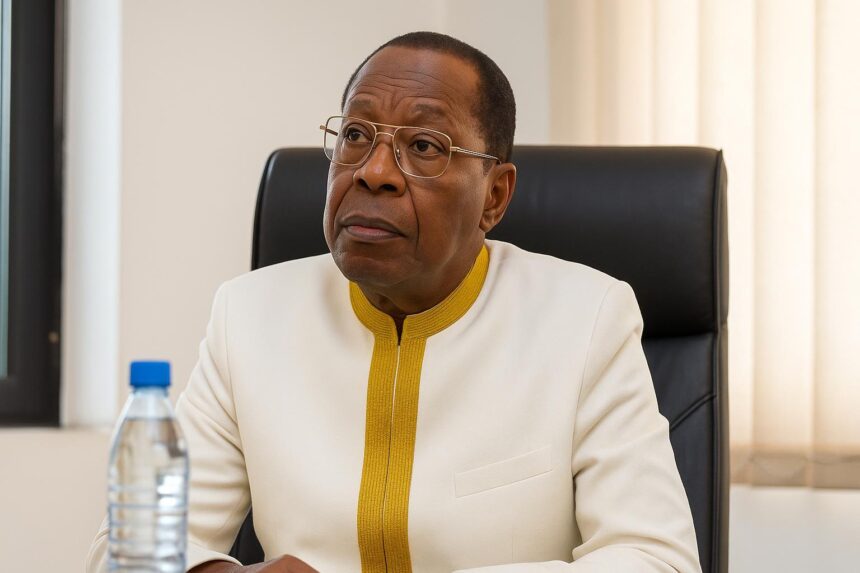Kick-Off Postponed
Football fans in Congo-Brazzaville will have to wait a little longer for the new Ligue 1 season. The Fédération congolaise de football confirmed that the planned 13 September kick-off is now postponed by exactly two weeks, pushing the start into late September.
The decision emerged from a tense meeting on 12 September at Fécofoot headquarters, where officials and representatives of the sixteen top-flight clubs reached unanimous agreement. Everyone left the room with mixed feelings: relief at clarity, dissatisfaction at another delay, yet determination to keep the ball rolling.
Stadium Access Deadlock
The stumbling block lies outside football’s governing body. According to Fécofoot president Jean Guy Blaise Mayolas, the Ministry of Sports has not yet granted access to national stadiums built during recent infrastructure programmes, leaving match organisers without an approved venue only hours before competition was due to begin.
Why are gates still padlocked? Officials at the Ministry of Sports cite maintenance schedules and security upgrades inside facilities such as Alphonse-Massamba-Débat Stadium. No specific timeline has been communicated publicly, although sources close to the file describe final inspections that have yet to receive formal sign-off.
Ignié Technical Centre Plan B
With no privately owned stadiums meeting league standards, Fécofoot’s technical centre in Ignié, 40 kilometres north of Brazzaville, has emerged as the front-runner for relocation. The site hosted youth tournaments in the past and includes training pitches, dormitories, and medical rooms originally financed through a FIFA development grant.
Nevertheless the venue requires tweaks before senior competition. Mayolas conceded that perimeter fencing must be raised, temporary stands assembled and proper dressing rooms installed to comply with CAF safety guidelines. He pledged to finish the works inside the newly allotted two-week window should the ministry maintain its stance.
Security dominated conversations around Ignié. Some club officials recalled past crowd invasions at provincial grounds. Fécofoot responded by promising increased police presence, controlled ticketing and clear evacuation routes. “This is a national league; we will protect athletes and supporters alike,” the federation president repeated for emphasis.
Clubs Face Sporting and Financial Heat
Clubs welcomed the clarity but stressed urgency. Team accountants already feel the pinch of extended pre-season payrolls, fuel, and medical bills. Without live fixtures they cannot trigger the match-day subsidies released by FIFA to member associations, payments that trickle down only when official games commence.
More than finance is at stake. Dominant side AS Otohô and former champions AC Léopards enter continental qualifiers between 20 and 21 September. Technical staff insist at least one domestic outing would sharpen rhythm before facing Primeiro de Agosto of Angola or Ferroviário de Beira of Mozambique.
“We have trained three months, yet nothing replaces competitive minutes,” said AS Otohô secretary general Kévin Ikouma, visibly frustrated after the meeting. He fears going into the Confederation Cup opener with legs fresh but minds uncertain, a scenario he considers avoidable with collaborative planning.
Racing Club de Brazzaville, newly promoted to the top tier, faces a different worry: revenue. Club president Jerry Doucouré explained that match postponements delay ticket sales vital for balancing budgets in a debut season. “Our priority is simple: we need the ball to roll,” he insisted.
Broadcast Partners and Fans React
Fans, for their part, voice mixed feelings online. Many accept a short postponement if it ultimately delivers a secure experience, yet others lament the frequent calendar changes that marked recent seasons. Supporter groups in Brazzaville and Pointe-Noire are already organizing bus travel should Ignié become the confirmed headquarters.
Broadcast partners are also monitoring the situation. Television executives fear logistical hurdles could limit camera angles or reduce signal quality from a temporary set-up. However, they acknowledge that airing competitive football, even from a smaller venue, attracts viewers and advertisers in a market hungry for live sport.
Timeline and Training Before First Whistle
While frustration brews, stakeholders avoid public confrontation, mindful of national unity themes often highlighted by government officials. Several club presidents expressed confidence that dialogue with the ministry will bear fruit. None questioned the broader commitment of authorities who funded stadium upgrades in the first place.
For coaches drawing up training loads, the extra fortnight is already mapped out. Fitness sessions will taper, then restart, to simulate opening-day intensity. Technical analysts plan friendly scrimmages behind closed doors, pending pitch availability, to keep tactical patterns fresh without exposing players to unnecessary injury risk.
All eyes therefore turn to the calendar’s new red-letter date. If stadium doors swing open, Ligue 1 will launch amid familiar urban buzz. Should the decision pivot to Ignié, supporters may discover a new football home, at least temporarily, proving adaptability is rapidly becoming Congo’s truly competitive trademark.





















